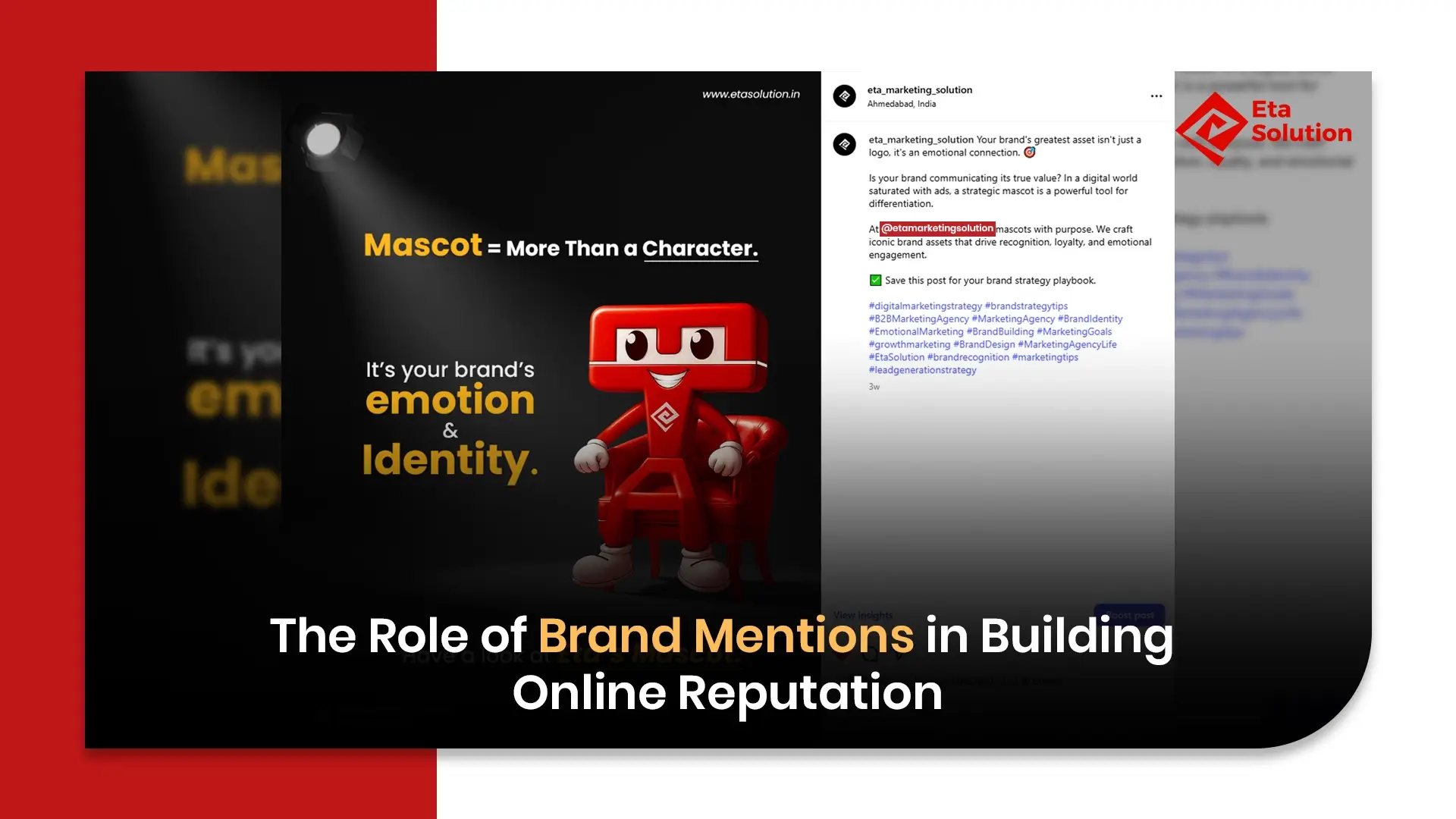
How Brand Mentions Influence Online Reputation
In the year 2025, a good reputation is no longer solely dependent on the company’s communication; rather, it is also based on the feedback that comes from others. The social impact that brands receive today is not limited only to a few journalists and a controlled number of other “influencers”: any user who hears or reads a brand can talk about it. Brand mentions have always been a crucial idea, but now even more so due to the digital evolution that has suddenly changed the game.
Just in case you don´t know: BrightLocal study emphasizes that over 9 in every 10 consumers, specifically 91%, trust conversations about brands they read online as much as those they hear from their friends.
Let us learn how mentions of the brand can help you, depending on these facts, to make a wise decision about your brand visibility.
1. What Are Brand Mentions
This refers to your product or company name being mentioned online, either in blogs, news articles, forums, videos, or social media, with or without linking to the website of the brand. Both types of mentions serve a big function concerning online branding and reputation management.
While unlinked brand mentions are becoming more and more important, Google is already recognizing them as brand signals indicating trust, relevance, and authority. Brands that are committed to digital marketing campaigns and which would like to keep their brand credibility for a longer period of time should realize the importance of this change.
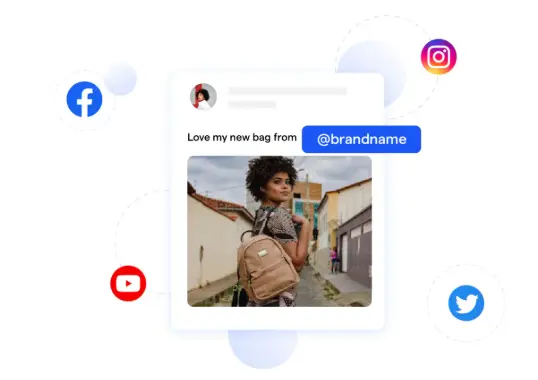
2. Types of Brand Mentions
There are no equals to all types of mentions. Brand Mentions are types of your brand’s mentions that can be separated into two main categories:
- Direct Mentions: Brand name mentions of your brand, using, for example, Direct quotations such as, “Nike just dropped an incredible sustainability report.”
- Indirect Mentions: Brand mentions that talk of your brand without using the name, like, “An athletic brand new to the market is doing the right thing in terms of sustainability.”
Mentions can also be:
- Positive ones, which lead to the real focus on the brand, which, in turn, generates the so-called social proof.
- Negative ones that lower the level of trust and can do so faster than you expect if you are not quick and sensitive enough in handling them.
- Neutral Mentions, which may be factual or news-based without emotional bias.
The most effective brands track all three because even neutral discussions can sway consumer perception over time.
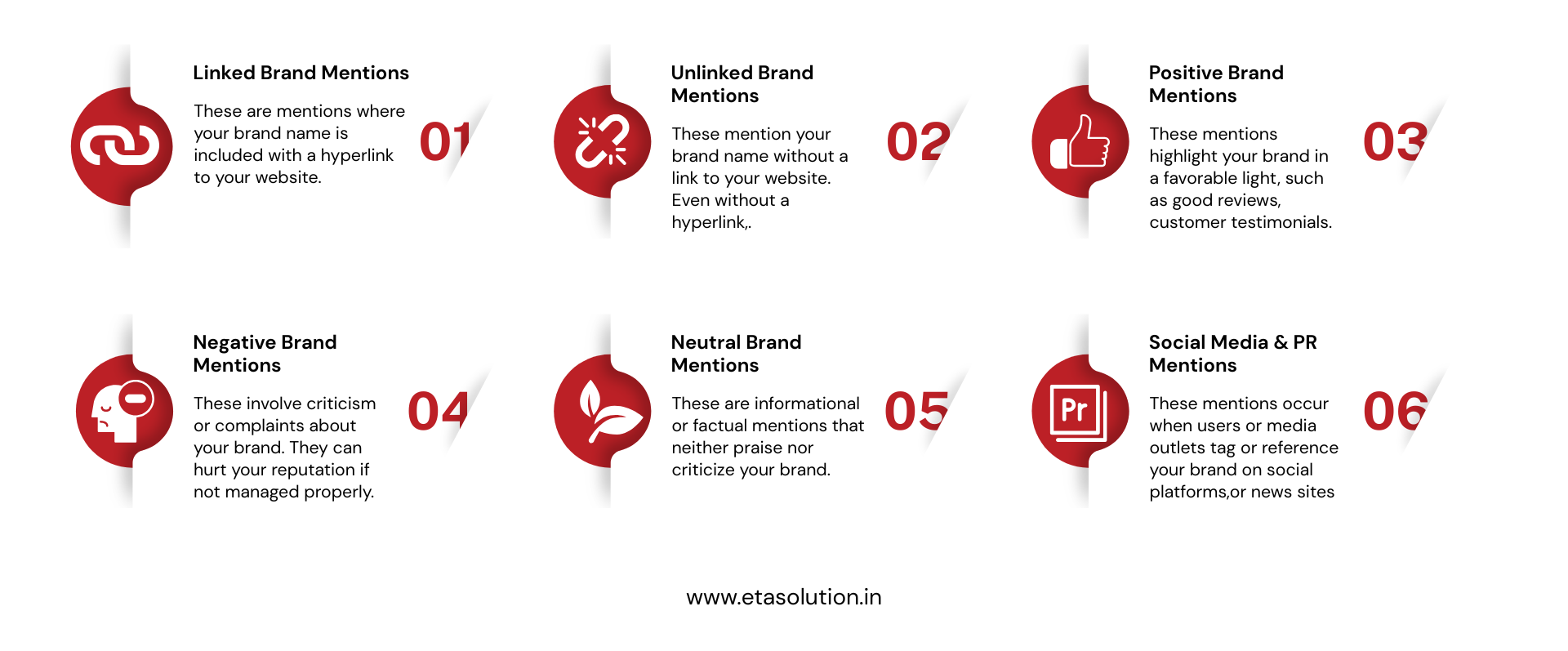
3. How Brand Mentions Impact Online Reputation
Your online reputation is the sum of public sentiment, and brand mentions are its heartbeat. A single viral thread on X or Reddit can either strengthen or shatter years of reputation management efforts.
Here’s what makes them powerful:
- Brand Credibility multiplier: Third-party mentions signal authenticity, especially when they come from trusted voices or verified accounts.
- Consumer validation: Consistent mentions create social proof, showing that real people talk about and trust your brand.
- Search impact: Frequent mentions, linked or unlinked, send positive cues to search engines about your relevance.
A Harvard Business Review study found that companies with higher positive mention-to-negative ratios experience up to 20% higher brand recall than their competitors.
4. Brand Mentions vs. Reviews
While both shape perception, there’s a subtle but critical difference. Reviews are a form of feedback that consumers provide intentionally, usually on some kind of organized platform. Brand mentions, on the other hand, are more natural; they occur in regular digital conversations.
In the event that someone writes, “The new coffee chain is the best cold brew I have ever tasted,” this would be a brand mention. It seems to users as authentic and unscripted, which is why 67% of users trust organic mentions more than branded reviews, according to Social Media Examiner.
Brands that are wise not only concentrate on getting reviews, but they also take the initiative to start natural conversations on different channels that lead to brand awareness and trust
5. Monitoring Brand Mentions
This is a stage where brand monitoring tools become the solution. Contemporary platforms such as Brand24, Mention, and Sprout Social employ AI to keep a lookout for mentions in real time. They carry out the analysis of sentiment, source credibility, and reach, which all combine to give a clear overview of how a brand is perceived by the marketers.
However, here is the secret that only insiders know: the most successful brands combine automated tools with manual social listening. They become part of the conversations, ask questions, and react carefully; thus, they convert passive mentions into engagement opportunities that result in a stronger online presence.
6. SEO Benefits of Brand Mentions
Search engines have evolved beyond backlinks. Google’s algorithms now interpret brand mentions as SEO brand signals, indicators of authority and trustworthiness. Even unlinked mentions contribute to your digital footprint when they occur across reputable domains.
The top digital marketing agency in India is the reason that talk-based strategies are their main focus rather than link-centric campaigns. High-authority sites, podcasts, or co-authored publications are places where mentions occur. These are signals of legitimacy to Google. They inform the algorithms that your brand is acknowledged, only not indexed.
7. Leveraging Positive Mentions
Positive mentions are digital gold, and how you use them determines your brand visibility and growth.
Here’s how brands amplify them effectively:
- Media-owned showcase: Display quotes or images from your social or website channels.
- Enter and thank the users: Personal feedback increases goodwill and inspires more advocacy.
- Use mentions in campaigns: Add customer-generated mentions to ads or Influencer marketing.
While Starbucks used #WhiteCupContest consumer tweets not only launched a campaign, but also transformed organic mentions into worldwide creative participation, thus increasing their engagement by 20%.
8. Handling Negative Brand Mentions
Negative mentions aren’t the enemy; they’re an opportunity for real-time reputation management. The key lies in response speed and tone.
- Acknowledge publicly: Silence often reads as guilt.
- Address privately: Move sensitive conversations to DMs or email once acknowledged.
- Rectify and follow up: Share updates once resolved, which demonstrates accountability.
Brands that respond within 24 hours of a negative mention recover 80% faster from potential PR dips, according to Sprinklr data.
9. Brand Mentions in Social Media Marketing
Social media is the epicenter of brand mentions today. From influencer shoutouts to viral memes, every mention adds a new layer to your digital story.
Successful brands don’t wait for mentions; they spark them. Using influencer marketing collaborations, interactive polls, or shareable content formats can trigger authentic engagement. The best part? Mentions such as these help to increase brand awareness and design reach, which are the main advantages of any brand, without going through the process of being directly advertised.
One illustrative example: When Spotify wrapped up its yearly campaign, it wasn’t the ads that received the most attention; it was the wave of user posts sharing their stats. The mentions were the marketing.
10. Measuring ROI of Brand Mentions
To measure the influence of brand mentions is to feel like dealing with something intangible, but data-driven marketers are employing advanced metrics to connect brand mentions to business outcomes.
Some of the main indicators are:
- Sentiment ratio: The number of positive mentions in relation to the negative ones.
- Traffic correlation: Referral traffic generated after a sudden increase in mentions.
- Engagement lift: Increase in followers, shares, or CTR after brand discussions.
- Conversion attribution: Mentions that precede lead inquiries or purchases.
Industry experts at Moz recently discussed that brands integrating mention analytics into their SEO dashboards see 18% higher campaign ROI compared to those who treat mentions as vanity metrics.
Final Take
Brand mentions have become the digital heartbeat of reputation. So brand mentions don’t only represent the way people talk about your business, but also shape how algorithms, media, and consumers perceive it. Your power, as a rising startup or a Top Digital Marketing Agency in India, to have brand mentions not only to monitor but also to engage and leverage will be the key to your competitive advantage in a world where attention is fragmented.
Therefore, the real question is if you are still tracking your backlinks or if you are listening to your brand’s conversation across the web? Because in today’s reputation economy, that conversation is the ultimate measure of trust.
You can find unlinked brand mentions by searching for your brand name on Google or using tools like Google Alerts, Ahrefs, or SEMrush. These tools show where your brand name appears online. Check if your brand name is mentioned but not linked to your website. If it’s unlinked, you can contact the site owner and politely ask them to add a link to your website.
Yes, you can mention brand names in your blog. It’s allowed as long as you’re not misrepresenting or harming the brand’s image. Many bloggers mention other brands for reviews, comparisons, or examples. Just make sure your statements are honest, factual, and respectful to avoid legal or ethical issues.
Yes, negative brand mentions can affect your rankings indirectly. If people speak negatively about your brand online, it can reduce trust and reputation, which might lower engagement and click rates. Search engines value reputation signals, so a poor online image can influence your SEO performance over time.
You can track social mentions using tools like Hootsuite, Brand24, Mention, or Sprout Social. These tools monitor social media platforms for any posts or comments that mention your brand name. You can also use hashtags and search filters on platforms like X (Twitter), Instagram, or Facebook to find brand mentions manually.
To check a website for brand mentions, you can use the “site:” search operator in Google. For example, type site:example.com your brand name. This shows if your brand is mentioned on that website. Tools like Ahrefs, Moz, or BuzzSumo can also scan websites and show where your brand appears, linked or unlinked.

What started as a passion for marketing years ago turned into a purposeful journey of helping businesses communicate in a way that truly connects. I’m Heta Dave, the Founder & CEO of Eta Marketing Solution! With a sharp focus on strategy and human-first marketing, I closely work with brands to help them stand out of the crowd and create something that lasts, not just in visibility, but in impact!
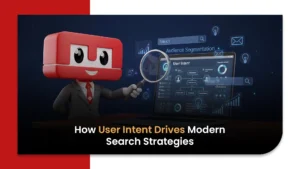
How User Intent Drives Modern Search Strategies
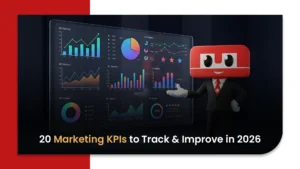
20 Marketing KPIs to Track & Improve in 2026

